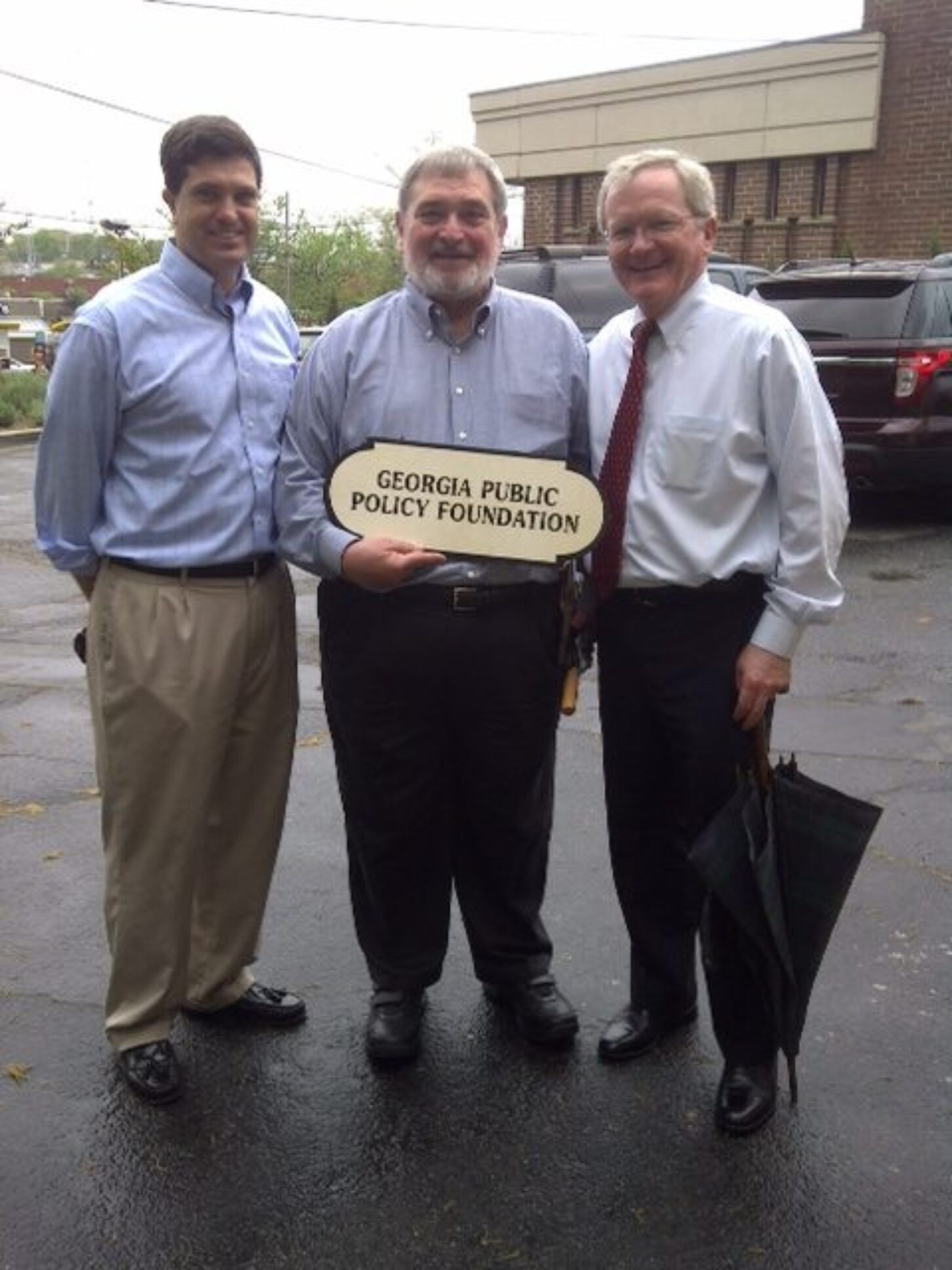
It’s Friday!
Events
January 23: More than 28,000 events will celebrate National School Choice Week 2018 January 21-27. The Georgia Public Policy Foundation will celebrate with a Leadership Breakfast keynoted by Senior Fellow Ben Scafidi, 8 a.m. at the Georgian Club. The topic is “Georgia 2020: Educational Opportunity for All K-12 Students in Georgia.” $30. Details to follow.

A personal note: The Foundation announced this week that President and CEO Kelly McCutchen will be leaving after nearly 25 years, the past seven spent at the helm of the organization. A search is under way for a new leader. Find out more here.
Quotes of note
“Whenever we are planning for posterity, we ought to remember that virtue is not hereditary.” – Thomas Paine
“We have never stopped sin by passing laws; and in the same way, we are not going to take a great moral ideal and achieve it merely by law.” – Dwight D. Eisenhower
“Government does not tax to get the money it needs; government always finds a need for the money it gets.” – Ronald Reagan
Taxes and spending
Tax cut impact: The Tax Foundation calculated the impact of the proposed tax plan on sample families, a helpful approach that factors in all of the many changes. For example, someone concerned about losing a deduction may find out the drop in the tax rate or increase in the standard deduction makes up for it. Tax reform is always about tradeoffs; one can’t focus on just one part of any plan.
Tax cut myths: The U.S. House and Senate tax-reform bills are far from perfect, National Review acknowledges, “But many critics are blatantly misrepresenting them.” Foes claim it’s a health-care tax hike; it will hike taxes on the middle class and favor the rich, and it will blow up the deficit. “Voters should dismiss the four misleading arguments described above and seek out better information about the bills,” National Review proposes.
Health care
Risk-averse consequences: Pay-for-performance payment models could lead providers to turn away low-income patients with complex care needs, according to a new study published in Annals of Internal Medicine. It found practices that cared for high-risk patients were more likely to receive financial penalties because their patients had higher rates of hospitalization, mortality and Medicare spending. Source: Modern Healthcare
Better shop around: Few Americans with high-deductible health plans are comparing prices when accessing health care treatment, according to a study published in JAMA Internal Medicine. Researchers propose that, “Health systems could make prices for services available at the point of care to facilitate patient and clinician conversations about cost. Employers and insurers could go beyond disseminating price information to help patients learn how to use this information in health care decisions.”
Medicaid: “By encouraging work and allowing state innovation, Seema Verma is charting a new path for our biggest social safety net program,” says the American Enterprise Institute’s Robert Doar. (Verma runs the federal Department of Health and Human Services’ Centers for Medicare and Medicaid Services.)
Education
Choice matters: EdChoice’s 2017 Schooling in America survey found that when given a description of education savings account (ESA) programs, seven out of 10 respondents (71 percent) were in favor of them. More than six out of 10 (62 percent) said they support school vouchers, compared with 31 percent opposed. Sadly, despite charter schools celebrating 25 years of existence in 2017, 23 percent of respondents were unfamiliar with charter schools. When given a description, though, 61 percent support charter schools while 29 percent oppose them.
Economy
Cash comeback: Plastic is still the choice for Americans’ main spending, but they’re less likely to go cash-free for a week than in past years, according to a new Rasmussen Reports survey. It found that 47 percent of American adults have gone a full week without paying for anything with cash and coins. In 2016, 50 percent went cash-free; and 53 percent in 2015. It was 43 percent in 2012 when Rasmussen first asked the question.
Friday Flashback
This month in the archives: In December 10 years ago, the Foundation published, “Shining Some Light on State Spending.” It noted, “The public and its elected representatives must constantly fight for limited and open government by asking tough questions. For example, why does Georgia spend 10 percent more per student on education than Florida and North Carolina, yet student achievement is higher in those states? Why does Georgia’s Medicaid program spend 7 percent more per child and 39 percent more per adult than Florida? Why hasn’t Georgia reformed its health care plan for current and retired state employees when, according to expert estimates, that could save more than $4 billion over five years?”
Media
Foundation in the news: The Augusta Chronicle published an op-ed by Newt Gingrich and Kelly McCutchen on Georgia’s leadership role in criminal justice reform.
Visit www.georgiapolicy.org to read our latest commentary, “Marsy’s Law of Unintended Consequences,” by Benita M. Dodd.
Have a great weekend!
Kelly McCutchen and Benita Dodd
FRIDAY FACTS is made possible by the generosity of the Georgia Public Policy Foundation’s donors. If you enjoy the FRIDAY FACTS, please consider making a tax-deductible contribution to help advance our important mission by clicking here. Visit our Web site at www.georgiapolicy.org. Join The Forum at http://forum.georgiapolicy.org/. Find the Foundation on social media at Facebook, twitter.com/gppf and Instagram.
